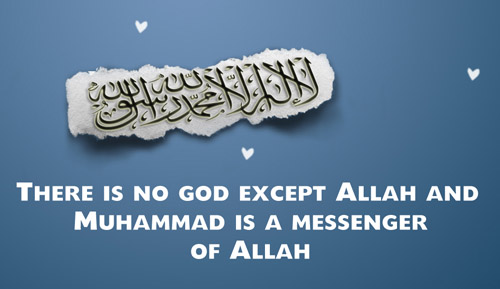In a world that often needs a helping hand, the teachings of Islam stand out for their message of compassion. At the core of this faith lies a strong emphasis on aiding the poor and needy. Crossing cultural barriers, and urging believers to show kindness to those facing challenges. It focuses on charity, empathy, and social responsibility.
Islam highlights the moral obligation to support the less fortunate and showcases how generosity can bring about meaningful change. Giving Zakat and Sadaqah to the poor and needy is an obligation for every Muslim. It is an essential component of worshiping and appeasing Allah the Almighty. Join us as we explore the significance of helping the poor and needy in Islam. Let’s discover the spiritual rewards of embracing Islam’s call to help fellow human beings.
Ways of Helping The Poor and Needy
In Islam, helping the poor and needy is strongly encouraged, and various ways exist. Here are some ways you can help the poor and needy, following Islamic teachings:
Zakat: Zakat is one of the Five Pillars of Islam and involves giving a portion (usually 2.5%) of your wealth to those in need. It is obligatory for Muslims who meet specific financial criteria. Zakat is a systematic way to ensure the redistribution of wealth and to support the less fortunate.
Sadaqah: Sadaqah refers to voluntary acts of charity and giving. It can be given in various forms, such as monetary donations, food, clothing, or even a smile. Sadaqah can be given at any time and in any amount, and it’s a way to purify your wealth and help those in need.
Providing Food and Water: Distributing food and clean water to the poor and hungry is highly rewarding. The Prophet Muhammad (peace be upon him) emphasized the importance of feeding. The hungry and encouraged sharing meals with those in need.
Clothing the Needy: Donating clothing to those who lack proper attire is another way to help the needy. Providing warm clothing in the winter and suitable clothing for different seasons is a compassionate act.
Medical Assistance: Offering medical help to those who cannot afford healthcare is a significant form of charity. Covering medical expenses or providing access to medical care is a way to alleviate suffering.
Educational Support: Providing education and educational resources to those who cannot afford. Them empowers individuals to break the cycle of poverty. Scholarships, textbooks, and school supplies can make a difference.
Shelter and Housing: Supporting initiatives that provide shelter to the homeless or those living in inadequate housing. Is a way to address a fundamental need for security and dignity.
Supporting Orphans: Islam places a particular emphasis on caring for orphans. Financially supporting orphans, providing them with education, and ensuring their well-being is a highly regarded act.
Microfinance: Offering interest-free loans or microfinance opportunities to individuals. Who want to start small businesses can help them become financially self-sufficient.
Volunteering and Service: Giving your time and skills to organizations. That work with the poor and needy can significantly impact you. Volunteering at shelters, soup kitchens, or community centers allows you to engage with those you’re helping directly.
Rewards For Helping The Poor And Needy In Islam
In Islam, helping the poor and needy is a virtuous act and an essential part of one’s faith. Muslims are encouraged to engage in charity and kindness to uplift those less fortunate. Here are ten rewards for helping the poor and needy in Islam, described in detail:
Blessings from Allah (SWT): The primary motivation for helping the poor and needy in Islam is to seek the pleasure and blessings of Allah (SWT). Acts of charity are considered a means of drawing closer to God and gaining His favor.
Purification of Wealth: Giving to the needy purifies one’s wealth, as it prevents hoarding and promotes the circulation of resources among the community. It acknowledges that wealth is a blessing from Allah and should be shared with others.
Forgiveness of Sins: Engaging in acts of charity and helping those in need can serve as a means of expiating sins. It is believed that Allah forgives the sins of those who are generous and compassionate toward others.
Protection from Calamities: Acts of charity are seen as a means of protection from various trials and tribulations. By helping the poor and needy, one may gain Allah’s protection from hardships and difficulties.
Multiplication of Rewards: The rewards for charity in Islam are multiplied manifold. The Prophet Muhammad (peace be upon him) mentioned that even a smile to someone can count as charity, and giving to those in need can result in rewards being multiplied many times over.
Elevated Status in Paradise: Those who consistently engage in acts of charity will be rewarded with an elevated status in Paradise. The more one helps the poor and needy, the higher their rank in the Hereafter.
Proximity to the Prophet: Helping the poor and needy is considered following in the footsteps of the Prophet Muhammad (peace be upon him), who was known for his compassion and generosity. Engaging in similar acts can lead to a closer connection with his exemplary character.
Intercession on the Day of Judgment: The charity given in this world can intercede on behalf of the giver on the Day of Judgment. This mediation can result in forgiveness and a lighter reckoning.
Barakah (Divine Blessings) in Life: Acts of charity invite divine blessings into one’s life. A person who helps the poor and needy is believed to receive blessings and ease in their affairs.
Fulfillment of Religious Duty: Islam considers helping the poor and needy a fundamental religious duty. Fulfilling this duty strengthens one’s faith and demonstrates a commitment to the teachings of Islam.
The Hadith On Helping The Poor And Needy
Several hadiths (sayings of the Prophet Muhammad, peace be upon him) emphasize the importance of helping the poor and needy in Islam. Here are a few notable ones:
Hadith on Compassion and Mercy
The Prophet Muhammad (peace be upon him) said: “The merciful will be shown mercy by the Most Merciful. Be merciful to those on the earth, and the One above the heavens will have mercy upon you.” (Sunan Ibn Majah)
Hadith on Caring for Orphans
The Prophet Muhammad (peace be upon him) said: “I and the one who looks after an orphan will be like this in Paradise,” showing his two fingers close together. (Sahih al-Bukhari)
Hadith on the Virtue of Feeding Others
The Prophet Muhammad (peace be upon him) said: “He is not a believer whose stomach is filled while the neighbor to his side goes hungry.” (Sahih al-Bukhari)
Hadith on Helping the Needy:
The Prophet Muhammad (peace be upon him) said: “Whoever relieves a believer’s distress from the distressful aspects of this world, Allah will rescue him from the difficulties of the Hereafter. Whoever alleviates [the situation of] one in dire straits who cannot repay his debt, Allah will alleviate his lot in both this world and the Hereafter.” (Sahih Muslim)
Hadith on the Reward for Helping Others:
The Prophet Muhammad (peace be upon him) said: “Charity does not decrease wealth; no one forgives another except that Allah increases his honor; and no one humbles himself for the sake of Allah except that Allah raises his status.” (Sahih Muslim) - umrelief.org



 One of the fundamental truths established by the sacred texts is that no one can be compelled to accept Islam. It is the duty of Muslims to establish the proof of Islam to the people so that truth can be made clear from falsehood. After that, whoever wishes to accept Islam may do so and whoever wishes to continue upon unbelief may do so. No one should be threatened or harmed in any way if he does not wish to accept Islam.
One of the fundamental truths established by the sacred texts is that no one can be compelled to accept Islam. It is the duty of Muslims to establish the proof of Islam to the people so that truth can be made clear from falsehood. After that, whoever wishes to accept Islam may do so and whoever wishes to continue upon unbelief may do so. No one should be threatened or harmed in any way if he does not wish to accept Islam.

 Western tradition regards work and labor as a cost incurred by those who want to consume the goods thus made available to them. The natural condition of mankind is considered to be one in which the earth will not satisfy human needs except when human beings work to make it do so. It is neither a logical nor an inevitable corollary of this view that less work is preferable to more. Even in this tradition, it is logically possible that some work is much more agreeable than others, and perhaps so much so that some work ceases to be a cost incurred in satisfying wants. It is, however, usual for this point to be ignored, particularly since an assumption common to economists from the nineteenth century onwards - and most explicit in the ideas of utilitarianism - is that efficiency and disagreeableness increase together, and that paid labor cannot be expected to offer much intrinsic satisfaction.
Western tradition regards work and labor as a cost incurred by those who want to consume the goods thus made available to them. The natural condition of mankind is considered to be one in which the earth will not satisfy human needs except when human beings work to make it do so. It is neither a logical nor an inevitable corollary of this view that less work is preferable to more. Even in this tradition, it is logically possible that some work is much more agreeable than others, and perhaps so much so that some work ceases to be a cost incurred in satisfying wants. It is, however, usual for this point to be ignored, particularly since an assumption common to economists from the nineteenth century onwards - and most explicit in the ideas of utilitarianism - is that efficiency and disagreeableness increase together, and that paid labor cannot be expected to offer much intrinsic satisfaction.